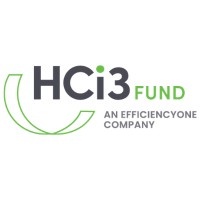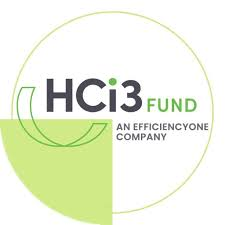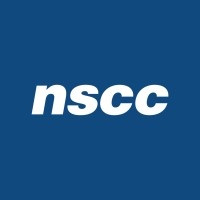
Closed
Accelerating to Zero Grant Program
Last Update: December 4, 2025
NS, Canada
Support for innovative equitable low-carbon transition projects
Grant and Funding
At a glance
Funding available
Financing goals
Reduce the ecological footprint
Eligible Funding
- Maximum amount : 75,000 $
- Up to 80% of project cost
Timeline
- Receipt of requests is now closed
Eligible candidates
Eligible Industries
- Utilities
- Construction
- Transportation and warehousing
Location
- Nova Scotia
Legal structures
- Financial cooperative
- Non-profit
- Public or Parapublic institution
- For-profit business
- Sole proprietorship
- Social economy enterprise
- Non-financial cooperative
Annual revenue
- All revenue ranges
Organisation size
- All organization sizes
Audience
- Indigenous Peoples
- Other Racialized Persons
- Black Canadians
- Canadians
Non-profit candidates
Sector of operation
- Environment
- Economic, Social and Community Development
- Housing
- Employment and Training
- Diversity and Inclusion
Target groups
- Indigenous peoples
- Rural / Remote communities
- Nonprofits / charities
- Community leaders
- Low-income individuals / families
- Minority groups
Revenue structures
- All structures
Scope
- Local
- Regional
Overview
Get $50,000 to cover 80% of the total cost of the project for up to 24 months to support a broad range of climate solutions promoting equity, reconciliation, job creation, community resilience, and other environmental benefits.
Activities funded
- Projects that directly reduce greenhouse gas emissions.
- Initiatives that lay the groundwork for ongoing greenhouse gas reduction efforts.
- Projects supporting the development of low-carbon housing, including building retrofits and net-zero new construction.
- Community-based renewable energy projects prioritizing social equity and innovative financing.
- Exploration of electric and/or shared mobility solutions with community-wide benefits.
- Projects enhancing social equity and promoting Reconciliation.
- Projects fostering job and skill development, biodiversity, and community resilience.
Examples of admissible projects:
$ 40,000
Launching a community composting program to reduce organic waste and improve soil health
$ 40,000
Creating a mobile app to promote sustainable transportation choices and reduce carbon footprint
$ 32,000
Implementing a recycling program schools to reduce waste and promote environmental stewardship
$ 40,000
Launching a community solar energy project to enhance local renewable energy use
$ 40,000
Developing urban green spaces to increase community resilience and biodiversity
$ 40,000
Establishing a green roofing program for small businesses to enhance urban sustainability
Eligibility
- Applicants must be organizations or companies, excluding individuals, individual schools or classrooms, provincially owned entities, including crown corporations, and political parties.
- Applicants must be based in or actively engaged in Nova Scotia, with the possibility for out-of-province partners if the primary applicant fits the criteria.
- Projects should be led by or partnered with organizations or communities representing historically racialized or marginalized groups for favorable consideration.
- Projects must lead to direct and/or potential reductions in greenhouse gas emissions over a 20-year period.
- Projects must secure a minimum of 20% matching funds, which can include non-cash contributions or in-kind contributions that are auditable and directly related to the project.
- Projects must occur primarily within the Halifax Regional Municipality (HRM), but those led by First Nations or African Nova Scotian communities may occur outside these boundaries if they provide meaningful benefits to HRM.
- Projects must demonstrate scalability or replicability both within and beyond HRM.
- Projects must yield multiple community benefits, such as enhancing social equity, promoting Reconciliation, improving affordability, fostering job and skill development, enhancing biodiversity, or strengthening community resilience.
- Projects must be completed within a maximum of 24 months from the start date.
Who is eligible?
- Organizations and companies based in or actively engaged in Nova Scotia
- Organizations or communities representing historically racialized or marginalized groups or communities are prioritized
Who is not eligible
- Individuals
- Individual schools or classrooms
- Provincially owned entities, including crown corporations
- Political parties
Eligible expenses
- Personnel salaries directly related to the project, provided they are an auditable expense.
- In-kind contributions such as salaries, if they are directly related to the project.
- Non-cash contributions used as matching funds.
Eligible geographic areas
- Halifax Regional Municipality (HRM)
- Projects outside HRM led by First Nations or African Nova Scotian communities offering benefits to HRM
- Applicants must be based in or actively engaged in Nova Scotia
Selection criteria
- Climate Impact: Projects must have long-term carbon reduction potential, focusing on scalability and replicability to enhance their impact.
- Equitable Participation: Projects should aim to correct historical and systemic disadvantages within climate solutions, ensuring inclusive participation and empowering all voices, particularly those most affected by climate change.
- Community and Partnerships: Beyond carbon reductions, projects should contribute to affordability, job creation, community resilience, health, and wellbeing, while fostering strong community partnerships.
- Reconciliation: Commitment to advancing a Reconciliation economy, drawing on Indigenous models that emphasize equitable wealth and resource sharing; projects should foster collaborative relationships with Indigenous communities.
How to apply
1
Review Program Guidelines and Eligibility
- Familiarize yourself with the program's eligibility criteria and guidelines.
- Ensure your organization and project meet the necessary requirements to apply.
2
Submit Your Idea Online
- Visit the grant's official website and fill out the initial online form.
- Provide details about your project concept and its alignment with the grant's objectives.
3
Initial Discussion Setup
- After submission, expect the organization to reach out to schedule a discussion.
- Engage in dialogue to co-develop projects aligning with grant objectives.
4
Develop Project Plan
- Work alongside grant providers to form a detailed project charter and budget.
- Ensure the project plan highlights community benefits and sustainability efforts.
5
Application Review
- A review committee evaluates the application and provides feedback.
- Refine the proposal based on constructive feedback from the review.
6
Final Submission and Decision
- Submit the refined application for final consideration.
- The funding decision will be communicated after the closing assessment.
7
Engage with Catalyst Stream Application (if applicable)
- Submit an online inquiry or engage in a conversation if applying to the Catalyst Stream.
- Participate in a streamlined application process for seed funding.
Additional information
- Grants can cover up to 80% of total project costs, requiring at least 20% in matching funds or in-kind contributions.
- A review committee assesses applications and may request clarification or modifications before a final decision is made.
- Projects must be completed within 24 months from the start date.
- Applications can include non-cash contributions or in-kind services as matching funds if they are directly related to the project and auditable.
Apply to this program
Frequently Asked Questions about the Accelerating to Zero Grant Program Program
Here are answers to the most common questions about the Accelerating to Zero Grant Program. This section explains what the program is, how much funding is available, eligibility requirements, application deadlines, and other important details to help you determine if this grant is right for your business.
What is the Accelerating to Zero Grant Program?
How much funding can be received?
Who is eligible for the Accelerating to Zero Grant Program program?
What expenses are eligible under Accelerating to Zero Grant Program?
Who can I contact for more information about the Accelerating to Zero Grant Program?
Where is the Accelerating to Zero Grant Program available?
Is the Accelerating to Zero Grant Program a grant, loan, or tax credit?
Apply to this program
More programs like this

Expert AdviceOpen
Business Navigators - NS
Government of Nova ScotiaHelp understanding business regulations in Nova Scotia

Grant and FundingClosed
HCi3 Grant Program
HCi3 FundSupports innovative local greenhouse gas reduction projects
N
Grant and FundingOpen
Nova Scotia Black Community Housing Fund
Community Housing Transformation CentreSupports Black-led community housing sector growth in Nova Scotia

Grant and FundingClosed
Youth Climate Action Fund
Halifax Climate Investment, Innovation and Impact Fund (HCi3)Empowering youth to innovate for climate change solutions

Wage Subsidies And InternsClosed
Energy Training Program for Students
Government of Nova ScotiaFunding for Nova Scotia students and recent graduates in the energy sector

Wage Subsidies And InternsOpen
Clean Leadership Summer Internships — Nova Scotia
Clean FoundationWage subsidies to hire students looking for careers in the clean economy

Loans and Capital investmentsOpen
Aboriginal Business Loans — General
UlnoowegLoans for Indigenous entrepreneurs in Atlantic Canada

Wage Subsidies And InternsOpen
GradWorks — Employer Incentive Program
Nova Scotia Community CollegeConnect with skilled graduates in Nova Scotia

Grant and FundingClosed
Low Carbon Communities
Government of Nova ScotiaFunding for low-carbon solutions projects

Loans and Capital investmentsOpen
Aboriginal Business Loans — Micro Loans
UlnoowegSmall loans for Indigenous entrepreneurs in Atlantic Canada
Sign up to our platform to access the Accelerating to Zero Grant Program information sheet for free
Get access to 4,000+ programs, practical guides, personalized alerts, and an AI assistant to support your grant applications.